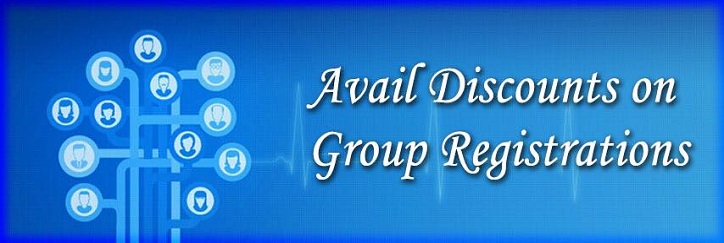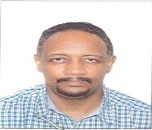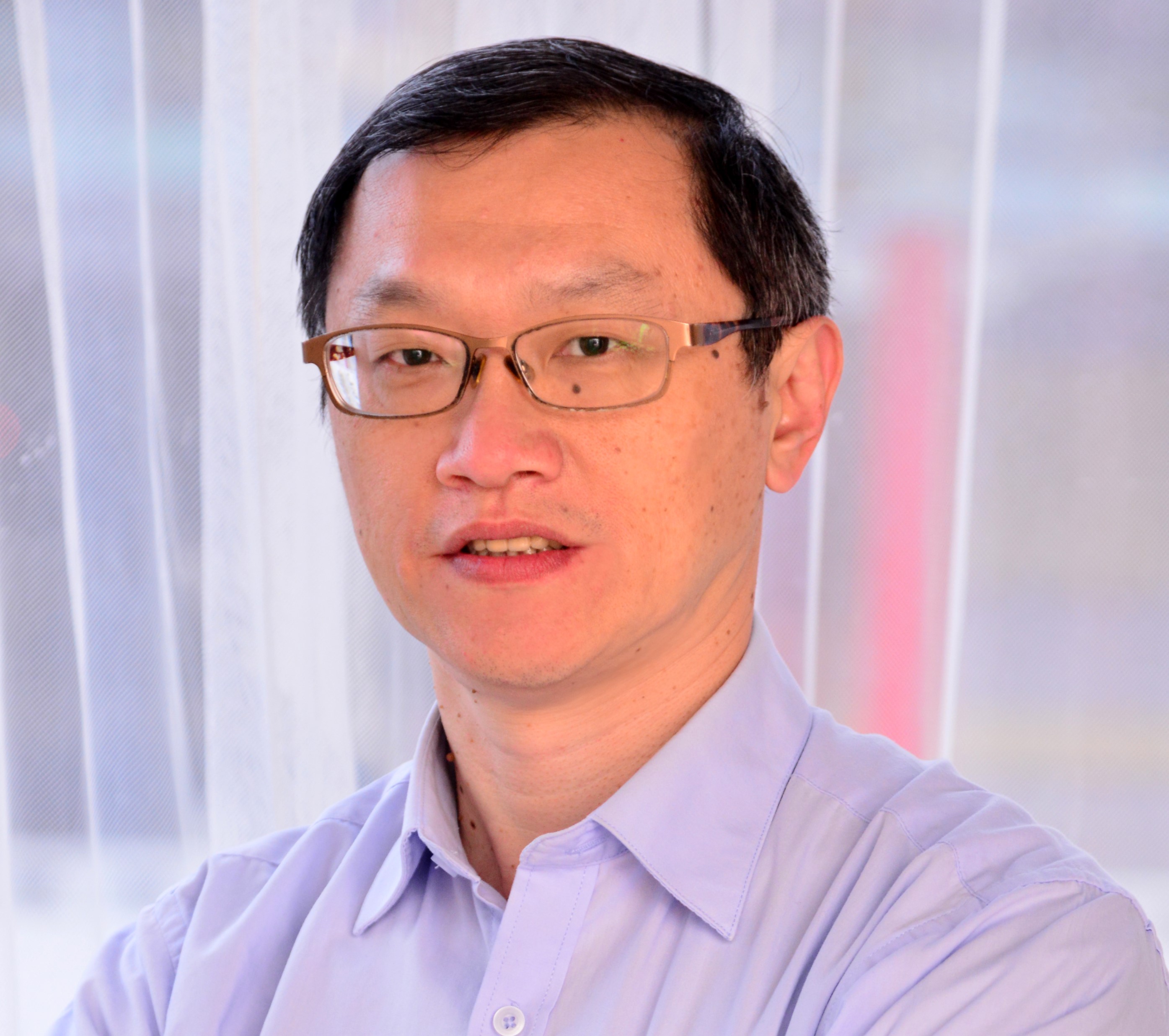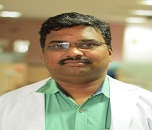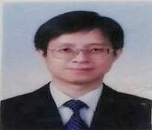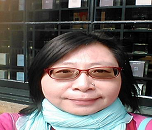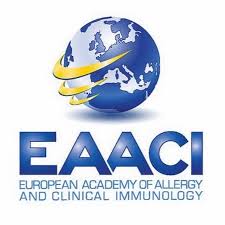Theme: Navigating the future with Immunologist
Immunologist Meeting 2017
Conference Series invites all the participants from all over the world to attend "9th Annual Meeting on Immunology and Immunologist “July 03-04,2017 Kuala Lumpur, Malaysia includes prompt keynote presentations, Oral talks, Poster presentations and Exhibitions.
Immunologist Meeting 2017 is to gathering people in academia and society interested in immunology to share the latest trends and important issues relevant to our field/subject area. Immunologist Meeting 2017 brings together the Global leaders in Immunology and relevant fields to present their research at this exclusive scientific program. The Immunology Conference hosting presentations from editors of prominent refereed journals, renowned and active investigators and decision makers in the field of Immunology. Immunology conference Organizing Committee also invites Young investigators at every career stage to submit abstracts reporting their latest scientific findings in oral and poster sessions. The Immunology conference will include invited speakers, oral presentations, poster session and the young scientist award. Conference Series organizes 1000+ Global Events inclusive of 300+ Conferences, 500+ Upcoming and Previous Symposiums and Workshops in USA, Europe & Asia with support from 1000 more scientific societies and publishes 700+ Open access journals which contains over 30000 eminent personalities, reputed scientists as editorial board members.
Why to attend??
With members from around the world focused on learning about Immunology and its advances; this is your best opportunity to reach the largest assemblage of participants from the Immunology community. Conduct presentations, distribute information, meet with current and potential scientists, make a splash with new drug developments, and receive name recognition at this 3-day event. World-renowned speakers, the most recent techniques, developments, and the newest updates in Immunology are hallmarks of this conference.
Target Audience
Immunology Students, Scientists
Immunology Researchers
Immunology Faculty
Medical Colleges
Immunology Associations and Societies
Business Entrepreneurs
Training Institutes
Manufacturing Medical Devices Companies
See more at : http://annualmeeting.conferenceseries.com/immunologist/
Session Tracks
Conference Series invites all the participants from all over the world to attend "9th Annual Meeting on Immunology and Immunologist”, July 03-04, 2017 Kuala Lumpur,Malaysia includes prompt keynote presentations, Oral talks, Poster presentations and Exhibitions.
The Immunology conferences deals with the major branches like Classical immunology, Clinical immunology, Osteoimmunology, Medicine immunology, Tissue-based immunology. It will broadly classify the cells of immune system, autoimmune diseases, antigen-antibody reactions, T cell development, B cell development, cytokines etc. Immunology has applications in numerous disciplines of medicine, particularly in the fields of organ transplantation, oncology, virology, bacteriology, parasitology, psychiatry, and dermatology. Immunologists employed by universities work in virtually every life science department or division conducting research to increase our understanding of the immune system.
Track:1 Auto Immunity
Autoimmunity is the system of immune responses of an organism against its own cells and tissues. Any disease that results from such an aberrant immune response is termed an autoimmune disease.
Autoimmunity is present to some extent in everyone and is usually harmless. However, autoimmunity can cause a broad range of human illnesses, known collectively as autoimmune diseases. Autoimmune diseases occur when there is progression from benign autoimmunity to pathogenic autoimmunity. This progression is determined by genetic influences as well as environmental triggers. Autoimmunity is evidenced by the presence of autoantibodies (antibodies directed against the person who produced them) and T cells that are reactive with host antigens.
An autoimmune disorder occurs when the body’s immune system attacks and destroys healthy body tissue by mistake. There are more than 80 types of autoimmune disorders.
Causes
The white blood cells in the body’s immune system help protect against harmful substances. Examples include bacteria, viruses, toxins, cancer cells, and blood and tissue from outside the body. These substances contain antigens. The immune system produces antibodies against these antigens that enable it to destroy these harmful substances. When you have an autoimmune disorder, your immune system does not distinguish between healthy tissue and antigens. As a result, the body sets off a reaction that destroys normal tissues. The exact cause of autoimmune disorders is unknown. One theory is that some microorganisms (such as bacteria or viruses) or drugs may trigger changes that confuse the immune system. This may happen more often in people who have genes that make them more prone to autoimmune disorders.
An autoimmune disorder may result in:
-
The destruction of body tissue
-
Abnormal growth of an organ
-
Changes in organ function
A person may have more than one autoimmune disorder at the same time. Common autoimmune disorders include:
-
Celiac disease - sprue (gluten-sensitive enteropathy)
-
Dermatomyositis
-
Graves' disease
-
Hashimoto's thyroiditis
-
Myasthenia gravis
Related: Immunology Conferences | Immunologists Meetings | ConferenceSeries Ltd
2nd International Conference on Antibodies and Therapeutics, July 11-12, 2016 Philadelphia, Pennsylvania, USA; 5th European Immunology Conferences, July 21-23, 2016 Berlin, Germany; 7th International Conference on Allergy, Asthma and Clinical Immunology, September 14-15, 2016 Amsterdam, Netherlands; 2nd international conference on innate immunity, July 21-22, 2016, Germany; International Conference on Autoimmunity, October 13-14, 2016 Manchester, UK; Immunology 2016, American Association of Immunologists Annual Meeting May 13-17, Los Angeles, USA Immunology Conferences; International Conference on Mucosal Immunology, July 28-29, 2016, Australia; International Congress of Immunology
Track: 2 Neuro Immunology
Neuroimmunology, a branch of immunology that deals especially with the inter relationships of the nervous system and immune responses and autoimmune disorders. It deals with particularly fundamental and applied neurobiology, meetings on neurology, neuropathology, neurochemistry, neurovirology, neuroendocrinology, neuromuscular research, neuropharmacology and psychology, which involve either immunologic methodology (e.g. immunocytochemistry) or fundamental immunology (e.g. antibody and lymphocyte assays).
Related: Immunology Conferences | Immunologists Meetings | ConferenceSeries Ltd
2nd International Conference on Antibodies and Therapeutics, July 11-12, 2016 Philadelphia, Pennsylvania, USA; 5th European Immunology Conferences, July 21-23, 2016 Berlin, Germany; 7th International Conference on Allergy, Asthma and Clinical Immunology, September 14-15, 2016 Amsterdam, Netherlands; 2nd international conference on innate immunity, July 21-22, 2016, Germany; International Conference on Autoimmunity, October 13-14, 2016 Manchester, UK; Immunology 2016, American Association of Immunologists Annual Meeting May 13-17, Los Angeles, USA Immunology Conferences; International Conference on Mucosal Immunology, July 28-29, 2016, Australia; International Congress of Immunology
Track: 3 Osteoimmunology
Osteoimmunology can affect almost any part of the body, including the heart, brain, nerves, muscles, skin, eyes, joints, lungs, kidneys, glands, the digestive tract, and blood vessels.
The classic sign of an autoimmune disease is inflammation, which can cause redness, heat, pain, and swelling. How an autoimmune disease affects you depends on what part of the body is targeted. If the disease affects the joints, as in rheumatoid arthritis, you might have joint pain, stiffness, and loss of function. If it affects the thyroid, as in Graves’ disease and thyroiditis, it might cause tiredness, weight gain, and muscle aches. If it attacks the skin, as it does in scleroderma/systemic sclerosis, vitiligo, and systemic lupus erythematosus (SLE), it can cause rashes, blisters, and colour changes. Many autoimmune diseases don’t restrict themselves to one part of the body. For example, SLE can affect the skin, joints, kidneys, heart, nerves, blood vessels, and more. Type 1 diabetes can affect your glands, eyes, kidneys, muscles, and more.
Related: Immunology Conferences | Immunologists Meetings | ConferenceSeries Ltd
2nd International Conference on Antibodies and Therapeutics, July 11-12, 2016 Philadelphia, Pennsylvania, USA; 5th European Immunology Conferences, July 21-23, 2016 Berlin, Germany; 7th International Conference on Allergy, Asthma and Clinical Immunology, September 14-15, 2016 Amsterdam, Netherlands; 2nd international conference on innate immunity, July 21-22, 2016, Germany; International Conference on Autoimmunity, October 13-14, 2016 Manchester, UK; Immunology 2016, American Association of Immunologists Annual Meeting May 13-17, Los Angeles, USA Immunology Conferences; International Conference on Mucosal Immunology, July 28-29, 2016, Australia; International Congress of Immunology
Track:4 Autoimmune Diseases
Autoimmunity is the system of immune responses of an organism against its own cells and tissues. Any disease that results from such an aberrant immune response is termed an autoimmune disease.
Autoimmunity is present to some extent in everyone and is usually harmless. However, autoimmunity can cause a broad range of human illnesses, known collectively as autoimmune diseases. Autoimmune diseases occur when there is progression from benign autoimmunity to pathogenic autoimmunity. This progression is determined by genetic influences as well as environmental triggers. Autoimmunity is evidenced by the presence of autoantibodies (antibodies directed against the person who produced them) and T cells that are reactive with host antigens.
Current treatments for allergic and autoimmune disease treat disease symptoms or depend on non-specific immune suppression. Treatment would be improved greatly by targeting the fundamental cause of the disease, that is the loss of tolerance to an otherwise innocuous antigen in allergy or self-antigen in autoimmune disease (AID). Much has been learned about the mechanisms of peripheral tolerance in recent years. We now appreciate that antigen presenting cells (APC) may be either immunogenic or tolerogenic, depending on their location, environmental cues and activation state
Related: Immunology Conferences | Immunologists Meetings | ConferenceSeries Ltd
2nd International Conference on Antibodies and Therapeutics, July 11-12, 2016 Philadelphia, Pennsylvania, USA; 5th European Immunology Conferences, July 21-23, 2016 Berlin, Germany; 7th International Conference on Allergy, Asthma and Clinical Immunology, September 14-15, 2016 Amsterdam, Netherlands; 2nd international conference on innate immunity, July 21-22, 2016, Germany; International Conference on Autoimmunity, October 13-14, 2016 Manchester, UK Immunology 2016, American Association of Immunologists, Annual Meeting May 13-17, Los Angeles, USA Immunology Conferences; International Conference on Mucosal Immunology, July 28-29, 2016, Australia; International Congress of Immunology
Track 5: Transplant Immunology
Transplantation can be a influential method for the treatment of end-stage organ failure. Transplantation is the process of transferring cells, tissues, or organs from one site to another. The dysfunction of an organ system can be reformed with transplantation of an organ from a donor. However, the immune system remains the most dreadful barrier to transplantation as a routine medical treatment. The immune system has developed complex and effective mechanisms to conflict foreign agents. These mechanisms are also involved in the dismissal of transplanted organs, which are perceived as foreign by the recipient's immune system.
Related: Immunology Conferences | Immunologists Meetings | ConferenceSeries Ltd
2nd International Conference on Antibodies and Therapeutics, July 11-12, 2016 Philadelphia, Pennsylvania, USA; 5th European Immunology Conferences, July 21-23, 2016 Berlin, Germany; 7th International Conference on Allergy, Asthma and Clinical Immunology, September 14-15, 2016 Amsterdam, Netherlands; 2nd international conference on innate immunity, July 21-22, 2016, Germany; International Conference on Autoimmunity, October 13-14, 2016 Manchester, Immunology 2016, American Association of Immunologists, Annual Meeting May 13-17, Los Angeles, USA Immunology Conferences; International Conference on Mucosal Immunology, July 28-29, 2016, Australia; International Congress of Immunology
Track 6: Innate and Adaptive Immune Responses
The immune system is the collection of cells, tissues and molecules that protects the body from numerous pathogenic microbes and toxins in our environment. This defense against microbes has been divided into two general types of reactions: reactions of innate immunity and reactions of adaptive immunity. Thus, innate and adaptive immunity can be thought of as two equally important aspects of the immune system. As you will see, each aspect differs with respect to how quickly it responds and for how long it responds to pathogens, its central effector cell types and its specificity for different classes of microbes. As its name suggests, the innate immune system consists of cells and proteins that are always present and ready to mobilize and fight microbes at the site of infection. It thus provides an immediate response to foreign invader.The main components of the innate immune system are 1) physical epithelial barriers, 2) phagocytic leukocytes, 3) dendritic cells, 4) a special type of lymphocyte called a natural killer (NK) cell, and 5) circulating plasma proteins. Innate immune responses are not specific to a particular pathogen in the way that the adaptive immune responses are. They depend on a group of proteins and phagocytic cells that recognize conserved features of pathogens and become quickly activated to help destroy invaders.
Related: Immunology Conferences | Immunologists Meetings | ConferenceSeries Ltd
2nd International Conference on Antibodies and Therapeutics, July 11-12, 2016 Philadelphia, Pennsylvania, USA; 5th European Immunology Conferences, July 21-23, 2016 Berlin, Germany; 7th International Conference on Allergy, Asthma and Clinical Immunology, September 14-15, 2016 Amsterdam, Netherlands; 2nd international conference on innate immunity, July 21-22, 2016, Germany; International Conference on Autoimmunity, October 13-14, 2016 Manchester, UK; Immunology 2016, American Association of Immunologist Annual Meeting May 13-17, Los Angeles, USA Immunology Conferences; International Conference on Mucosal Immunology, July 28-29, 2016, Australia; International Congress of Immunology
Track 7: Immune Responses
The effective immune response is an outcome of the reaction between antigen and a network of immunologically competent cells. The immune response is controlled by various mechanisms which restore the immune system to a resting state when response to a given antigen is no longer required. Effective immune responses are usually resulted from the interactions between pathogens and a network of immunologic elements.
Related: Immunology Conferences | Immunologists Meetings | ConferenceSeries Ltd
2nd International Conference on Antibodies and Therapeutics, July 11-12, 2016 Philadelphia, Pennsylvania, USA; 5th European Immunology Conferences, July 21-23, 2016 Berlin, Germany; 7th International Conference on Allergy, Asthma and Clinical Immunology, September 14-15, 2016 Amsterdam, Netherlands; 2nd international conference on innate immunity, July 21-22, 2016, Germany; International Conference on Autoimmunity, October 13-14, 2016 Manchester, UK; Immunology 2016, American Association of Immunologist Annual Meeting May 13-17, Los Angeles, USA Immunology Conferences; International Conference on Mucosal Immunology, July 28-29, 2016, Australia; International Congress of Immunology
Track: 8 Immunology
Immunology has evolved over the past two decades from a predominant laboratory base to a combined clinical and laboratory specialty. The clinical work of Immunologists is largely out-patient based and involves primary immunodeficiency, allergy, autoimmune rheumatic disease and systemic vasculitis (jointly with Rheumatologists), joint pediatric clinics for children with immunodeficiency and allergy and immunoglobulin infusion clinics for patients with antibody deficiency. On the laboratory front, Consultant Immunologists are responsible for directing diagnostic immunology services and perform a wide range of duties including clinical liaison, interpretation and validation of results, quality assurance and assay development.
Related: Immunology Conferences | Immunologists Meetings | ConferenceSeries Ltd
2nd International Conference on Antibodies and Therapeutics, July 11-12, 2016 Philadelphia, Pennsylvania, USA; 5th European Immunology Conferences, July 21-23, 2016 Berlin, Germany; 7th International Conference on Allergy, Asthma and Clinical Immunology, September 14-15, 2016 Amsterdam, Netherlands; 2nd international conference on innate immunity, July 21-22, 2016, Germany; International Conference on Autoimmunity, October 13-14, 2016 Manchester, UK; Immunology 2016, American Association of Immunologists Annual Meeting May 13-17, Los Angeles, USA Immunology Conferences; International Conference on Mucosal Immunology, July 28-29, 2016, Australia; International Congress of Immunology
Track:9 Immunooncology
The immune system is the body’s natural defence system. It is a collection of organs, cells and special molecules that helps protect you from infections, cancer and other diseases. Immuno-oncology therapies activate our immune system, making it able to recognise cancer cells and destroy them. Breast cancer is one of the major cancer types for which new immune-based cancer treatments are currently in development. Lung cancer surgery carries risks, including bleeding and infection. Clinical trials are studies of experimental lung cancer treatments. Adult central nervous system tumor is a disease in which abnormal cells form in the tissues of the brain and/or spinal cord. A tumor that starts in another part of the body and spreads to the brain is called a metastatic brain tumor. There are different types of brain and spinal cord tumors such as Astrocytic Tumors, Oligodendroglial Tumors, Mixed Gliomas, Ependymal Tumors, Medulloblastomas, Pineal Parenchymal Tumors, Meningeal Tumors, Germ Cell Tumors, Craniopharyngiom. Advances in Immuno-oncology have given oncologists and their patients reason to be encouraged—the launch of immune checkpoint inhibitors and development of other immunotherapy assets for the treatment of several difficult-to-treat diseases, including metastatic melanoma and non-small cell lung cancer, represents great progress.
Related: Immunology Conferences | Immunologists Meetings | ConferenceSeries Ltd
2nd International Conference on Antibodies and Therapeutics, July 11-12, 2016 Philadelphia, Pennsylvania, USA; 5th European Immunology Conferences, July 21-23, 2016 Berlin, Germany; 7th International Conference on Allergy, Asthma and Clinical Immunology, September 14-15, 2016 Amsterdam, Netherlands; 2nd international conference on innate immunity, July 21-22, 2016, Germany; International Conference on Autoimmunity, October 13-14, 2016 Manchester, UK; Immunology 2016, American Association of Immunologists Annual Meeting May 13-17, Los Angeles, USA Immunology Conferences; International Conference on Mucosal Immunology, July 28-29, 2016, Australia; International Congress of Immunology
Track:10 Immunodiagnostics
Immunodiagnostics.are laboratory techniques based on the detection of antibody production in response to foreign antigens. Antibodies, part of the humoral immune response, are involved in pathogen detection and neutralization.
Diagnostic immunology has considerably advanced due to the development of automated methods.New technology takes into account saving samples, reagents, and reducing cost.The future of diagnostic immunology faces challenges in the vaccination field for protection against HIV and as anti-cancer therapy. Modern immunology relies heavily on the use of antibodies as highly specific laboratory reagents. The diagnosis of infectious diseases, the successful outcome of transfusions and transplantations, and the availability of biochemical and hematologic assays with extraordinary specificity and sensitivity capabilities all attest to the value of antibody detection.Immunologic methods are used in the treatment and prevention of infectious diseases and in the large number of immune-mediated diseases. Advances in diagnostic immunology are largely driven by instrumentation, automation, and the implementation of less complex and more standardized procedures.
Examples of such processes are as follows:
-
miniaturization (use of microtiter plates to save samples and reagents),
-
amplified immunoassays (chemiluminesent ELISA),
-
flow cytometry with monoclonal antibodies,
-
Molecular methods (polymerase chain reactions).
These methods have facilitated the performance of tests and have greatly expanded the information that can be developed by a clinical laboratory. The tests are now used for clinical diagnosis and the monitoring of therapies and patient responses. Immunology is a relatively young science and there is still so much to discover. Immunologists work in many different disease areas today that include allergy, autoimmunity, immunodeficiency, transplantation, and cancer.
Related: Immunology Conferences | Immunologists Meetings | Conference Series Ltd
2nd International Conference on Antibodies and Therapeutics, July 11-12, 2016 Philadelphia, Pennsylvania, USA; 5th European Immunology Conferences, July 21-23, 2016 Berlin, Germany; 7th International Conference on Allergy, Asthma and Clinical Immunology, September 14-15, 2016 Amsterdam, Netherlands; 2nd international conference on innate immunity, July 21-22, 2016, Germany; International Conference on Autoimmunity, October 13-14, 2016 Manchester, UK; Immunology 2016, American Association of Immunologists, Annual Meeting May 13-17, Los Angeles, USA Immunology Conferences; International Conference on Mucosal Immunology, July 28-29, 2016, Australia; International Congress of Immunology
Track:11 Immunogenetics
Immunogenicity is the property enabling a substance to provoke an immune response, or the degree to which a substance possesses this property. The ability of an antigen to elicit immune responses is called immunogenicity, which can be humoral and/or cell-mediated immune responses. Proteins are more immunogenic & T-cells are required to drive immunogenicity. Protein therapeutics of all types can potentially elicit immune responses when administered to humans. Understanding immunogenicity is a key challenge in the development of therapeutics with many biologics inducing undesirable immune responses directed towards the therapeutic resulting in reduced efficacy, anaphylaxis and occasionally life threatening autoimmunity
Related: Immunology Conferences | Immunologists Meetings | ConferenceSeries Ltd
2nd International Conference on Antibodies and Therapeutics, July 11-12, 2016 Philadelphia, Pennsylvania, USA; 5th European Immunology Conferences, July 21-23, 2016 Berlin, Germany; 7th International Conference on Allergy, Asthma and Clinical Immunology, September 14-15, 2016 Amsterdam, Netherlands; 2nd international conference on innate immunity, July 21-22, 2016, Germany; International Conference on Autoimmunity, October 13-14, 2016 Manchester, UK; Immunology 2016, American Association of Immunologists Annual Meeting May 13-17, Los Angeles, USA Immunology Conferences; International Conference on Mucosal Immunology, July 28-29, 2016, Australia; International Congress of Immunology
Track:12 Immunoproteomics
Immunoproteomics is and has been used to increase scientific understanding of both autoimmune disease pathology and progression. Using biochemical techniques, gene and ultimately protein expression can be measured with high fidelity. With this information, the biochemical pathways causing pathology in conditions such as multiple sclerosis and Crohn's disease can potentially be elucidated. Serum antibody identification in particular has proven to be very useful as a diagnostic tool for a number of diseases in modern medicine, in large part due to the relatively high stability of serum antibodies
Related: Immunology Conferences | Immunologists Meetings | ConferenceSeries Ltd
2nd International Conference on Antibodies and Therapeutics, July 11-12, 2016 Philadelphia, Pennsylvania, USA; 5th European Immunology Conferences, July 21-23, 2016 Berlin, Germany; 7th International Conference on Allergy, Asthma and Clinical Immunology, September 14-15, 2016 Amsterdam, Netherlands; 2nd international conference on innate immunity, July 21-22, 2016, Germany; International Conference on Autoimmunity, October 13-14, 2016 Manchester, UK; Immunology 2016, American Association of Immunologists, Annual Meeting May 13-17, Los Angeles, USA Immunology Conferences; International Conference on Mucosal Immunology, July 28-29, 2016, Australia; International Congress of Immunology
Track:13 Immunotoxicology
Immunotoxicology is the study of immune dysfunction. Immunotoxicology is due to exposure of an organism to foreign chemical substance found within an organism that is not normally naturally produced by or expected to be present within that organism. Immune dysfunction may result in the reduction of the activity of the immune system. Immunotoxic substances, such as chemicals, pesticides, or drugs, can have adverse effects on the functioning of the immune system. The known effects include increased susceptibility to infections or tumors as a result of humoral and/or cellular immunity being compromised (immunosuppression), autoimmune diseases, chronic inflammation, and development of allergies.place to live
Related: Immunology Conferences | Immunologists Meetings | ConferenceSeries Ltd
2nd International Conference on Antibodies and Therapeutics, July 11-12, 2016 Philadelphia, Pennsylvania, USA; 5th European Immunology Conferences, July 21-23, 2016 Berlin, Germany; 7th International Conference on Allergy, Asthma and Clinical Immunology, September 14-15, 2016 Amsterdam, Netherlands; 2nd international conference on innate immunity, July 21-22, 2016, Germany; International Conference on Autoimmunity, October 13-14, 2016 Manchester, UK; Immunology 2016, American Association of Immunologist Annual Meeting May 13-17, Los Angeles, USA Immunology Conferences; International Conference on Mucosal Immunology, July 28-29, 2016, Australia; International Congress of Immunology
Track: 14 Reproductive Immunology
Reproductive immunology refers to a field of medicine that studies interactions (or the absence of them) between the immune system and components related to the reproductive system, such as maternal immune tolerance towards the fetus, or immunological interactions across the blood-testis barrier. The immune system refers to all parts of the body that work to defend it against harmful enemies. In people with immunological fertility problems their body identifies part of reproductive function as an enemy and sends Natural Killer (NK) cells to attack. A healthy immune response would only identify an enemy correctly and attack only foreign invaders such as a virus, parasite, bacteria, ect.
The concept of reproductive immunology is not widely accepted by all physicians. Those patients who have had repeated miscarriages and multiple failed IVF's find themselves exploring it's possibilities as the reason. With an increased amount of success among treating any potential immunological factors, the idea of reproductive immunology can no longer be overlooked.The failure to conceive is often due to immunologic problems that can lead to very early rejection of the embryo, often before the pregnancy can be detected by even the most sensitive tests. Women can often produce perfectly healthy embryos that are lost through repeated "mini miscarriages." This most commonly occurs in women who have conditions such as endometriosis, an under-active thyroid gland or in cases of so called "unexplained infertility." It has been estimated that an immune factor may be involved in up to 20% of couples with otherwise unexplained infertility. These are all conditions where abnormalities of the woman’s immune system may play an important role.
Related: Immunology Conferences | Immunologists Meetings | ConferenceSeries Ltd
2nd International Conference on Antibodies and Therapeutics, July 11-12, 2016 Philadelphia, Pennsylvania, USA; 5th European Immunology Conferences, July 21-23, 2016 Berlin, Germany; 7th International Conference on Allergy, Asthma and Clinical Immunology, September 14-15, 2016 Amsterdam, Netherlands; 2nd international conference on innate immunity, July 21-22, 2016, Germany; International Conference on Autoimmunity, October 13-14, 2016 Manchester, UK; Immunology 2016, American Association of Immunologists, Annual Meeting May 13-17, Los Angeles, USA Immunology Conferences; International Conference on Mucosal Immunology, July 28-29, 2016, Australia; International Congress of Immunology
Track:15 Tumor Immunology
The tumour is an important aspect of cancer biology that contributes to tumour initiation, tumour progression and responses to therapy. Cells and molecules of the immune system are a fundamental component of the tumour microenvironment. Importantly, therapeutic strategies for cancer treatment can harness the immune system to specifically target tumour cells and this is particularly appealing owing to the possibility of inducing tumour-specific immunological memory, which might cause long-lasting regression and prevent relapse in cancer patients. The composition and characteristics of the tumour microenvironment vary widely and are important in determining the anti-tumour immune response. Immunotherapy is a new class of cancer treatment that works to harness the innate powers of the immune system to fight cancer. Because of the immune system's unique properties, these therapies may hold greater potential than current treatment approaches to fight cancer more powerfully, to offer longer-term protection against the disease, to come with fewer side effects, and to benefit more patients with more cancer
Related: Immunology Conferences | Immunologists Meetings | ConferenceSeries Ltd
2nd International Conference on Antibodies and Therapeutics, July 11-12, 2016 Philadelphia, Pennsylvania, USA; 5th European Immunology Conferences, July 21-23, 2016 Berlin, Germany; 7th International Conference on Allergy, Asthma and Clinical Immunology, September 14-15, 2016 Amsterdam, Netherlands; 2nd international conference on innate immunity, July 21-22, 2016, Germany; International Conference on Autoimmunity, October 13-14, 2016 Manchester, UK; Immunology 2016, American Association of Immunologists Annual Meeting May 13-17, Los Angeles, USA Immunology Conferences; International Conference on Mucosal Immunology, July 28-29, 2016, Australia; International Congress of Immunology
Track:16 Systems Immunology
The study of the molecular and cellular components that comprise the immune system, including their function and interaction, is the central science of immunology. The immune system has been divided into a more primitive innate immune system and, in vertebrates, an acquired or adaptive immune system
The field concerning the interactions among cells and molecules of the immune system, and how such interactions contribute to the recognition and elimination of pathogens. Humans possess a range of non-specific mechanical and biochemical defences against routinely encountered bacteria, parasites, viruses, and fungi. The skin, for example, is an effective physical barrier to infection. Basic chemical defences are also present in blood, saliva, and tears, and on mucous membranes. True protection stems from the host's ability to mount responses targeted to specific organisms, and to retain a form of “memory” that results in a rapid, efficient response to a given organism upon a repeat encounter. This more formal sense of immunity, termed adaptive immunity, depends upon the coordinated activities of cells and molecules of the immune system.
Related: Immunology Conferences | Immunologists Meetings | ConferenceSeries Ltd
2nd International Conference on Antibodies and Therapeutics, July 11-12, 2016 Philadelphia, Pennsylvania, USA; 5th European Immunology Conferences, July 21-23, 2016 Berlin, Germany; 7th International Conference on Allergy, Asthma and Clinical Immunology, September 14-15, 2016 Amsterdam, Netherlands; 2nd international conference on innate immunity, July 21-22, 2016, Germany; International Conference on Autoimmunity, October 13-14, 2016 Manchester, UK; Immunology 2016, American Association of Immunologists Annual Meeting May 13-17, Los Angeles, USA Immunology Conferences; International Conference on Mucosal Immunology, July 28-29, 2016, Australia; International Congress of Immunology
Track 17: Microbial Immunology
Microbial Immunology expects studies examining responses to any microbial agent, including viruses, bacteria and parasites. The Microbiology, Microbial Pathogenesis and Immunology concentrate on the study of host-pathogen interactions at the molecular and cellular levels
Most parasites, by the nature of their continuous contact with the immune system, generate a prolific immune response. Unfortunately, much of this response is not protective, and some is harmful. Protective immunity in some infections is due to a combination of humoral and cellular immunity; in this circumstance parasites are coated with antibody which makes them susceptible to direct cytotoxicity by macrophages, eosinophils, and neutrophils. Antibody alone is protective against some other infections. Nonspecific and genetic factors are clearly important but are still undefined participants in the host response. The immune response may be pathogenic by inducing hypersensitivity, immunologically mediated fibrosis, or circulating immune complexes. Additionally, Parasites have evolved unique ways of protecting themselves from the immune system, including altering their antigenic coat and inducing immunosuppression. Attempts to isolate "host-protective" antigens in parasitic infections may lead to effective vaccine development.
Related: Immunology Conferences | Immunologists Meetings | ConferenceSeries Ltd
2nd International Conference on Antibodies and Therapeutics, July 11-12, 2016 Philadelphia, Pennsylvania, USA; 5th European Immunology Conferences, July 21-23, 2016 Berlin, Germany; 7th International Conference on Allergy, Asthma and Clinical Immunology, September 14-15, 2016 Amsterdam, Netherlands; 2nd international conference on innate immunity, July 21-22, 2016, Germany; International Conference on Autoimmunity, October 13-14, 2016 Manchester, UK; Immunology 2016, American Association of Immunologists, Annual Meeting May 13-17, Los Angeles, USA Immunology Conferences; International Conference on Mucosal Immunology, July 28-29, 2016, Australia; International Congress of Immunology
Track:18 Industrial Aspects of Immunology
Immunology is the branch of biomedical sciences concerned with all aspects of the immune system in all multicellular organisms. Immunology deals with physiological functioning of the immune system in states of both health and disease as well as malfunctions of the immune system in immunological disorders like allergies, hypersensitivities, immune deficiency, transplant rejection and autoimmune disorders.
Related: Immunology Conferences | Immunologists Meetings | ConferenceSeries Ltd
2nd International Conference on Antibodies and Therapeutics, July 11-12, 2016 Philadelphia, Pennsylvania, USA; 5th European Immunology Conferences, July 21-23, 2016 Berlin, Germany; 7th International Conference on Allergy, Asthma and Clinical Immunology, September 14-15, 2016 Amsterdam, Netherlands; 2nd international conference on innate immunity, July 21-22, 2016, Germany; International Conference on Autoimmunity, October 13-14, 2016 Manchester, UK; Immunology 2016, American Association of Immunologists, Annual Meeting May 13-17, Los Angeles, USA Immunology Conferences; International Conference on Mucosal Immunology, July 28-29, 2016, Australia; International Congress of Immunology
Track : 19 Medicine Immunology
The branch of biomedicine concerned with the structure and function of the immune system, innate and acquired immunity, the bodily distinction of self from self, and laboratory techniques involving the interaction of antigens with specific antibodies is Medicinal Immunology.
Related: Immunology Conferences | Immunologists Meetings | ConferenceSeries Ltd
2nd International Conference on Antibodies and Therapeutics, July 11-12, 2016 Philadelphia, Pennsylvania, USA; 5th European Immunology Conferences, July 21-23, 2016 Berlin, Germany; 7th International Conference on Allergy, Asthma and Clinical Immunology, September 14-15, 2016 Amsterdam, Netherlands; 2nd international conference on innate immunity, July 21-22, 2016, Germany; International Conference on Autoimmunity, October 13-14, 2016 Manchester, UK; Immunology 2016, American Association of Immunologists, Annual Meeting May 13-17, Los Angeles, USA Immunology Conferences; International Conference on Mucosal Immunology, July 28-29, 2016, Australia; International Congress of Immunology
Track: 20 Prostaglandins and leukotriene
Many cell types synthesize prostaglandins and leukotriene from arachidonic acid, a polyunsaturated fatty acid component of phospholipids. Two cyclooxygenase isoenzymes are COX-1 and COX-2. Pro-inflammatory effects in isolation, prostaglandins PGE2 and PGD2 promote vasodilatation. Leukotriene’s C4, D4, E4 may cause bronchial constriction .They enhance vascular permeability. It also includes Pharmacology cross reference, Cortisol and related glucocorticosteroids inhibition of cyclooxygenases (COX), acetylsalicylic acid (Aspirin®) and other NSAIDs
Related: Immunology Conferences | Immunologists Meetings | ConferenceSeries Ltd
2nd International Conference on Antibodies and Therapeutics, July 11-12, 2016 Philadelphia, Pennsylvania, USA; 5th European Immunology Conferences, July 21-23, 2016 Berlin, Germany; 7th International Conference on Allergy, Asthma and Clinical Immunology, September 14-15, 2016 Amsterdam, Netherlands; 2nd international conference on innate immunity, July 21-22, 2016, Germany; International Conference on Autoimmunity, October 13-14, 2016 Manchester, UK; Immunology 2016, American Association of Immunologists, Annual Meeting May 13-17, Los Angeles, USA Immunology Conferences; International Conference on Mucosal Immunology, July 28-29, 2016, Australia; International Congress of Immunology
Track 21: Adaptive Immune Responses
The immune system is the collection of cells, tissues and molecules that protects the body from numerous pathogenic microbes and toxins in our environment. This defense against microbes has been divided into two general types of reactions: reactions of innate immunity and reactions of adaptive immunity. Thus, innate and adaptive immunity can be thought of as two equally important aspects of the immune system. As you will see, each aspect differs with respect to how quickly it responds and for how long it responds to pathogens, its central effector cell types and its specificity for different classes of microbes. As its name suggests, the innate immune system consists of cells and proteins that are always present and ready to mobilize and fight microbes at the site of infection. It thus provides an immediate response to foreign invader.The main components of the innate immune system are 1) physical epithelial barriers, 2) phagocytic leukocytes, 3) dendritic cells, 4) a special type of lymphocyte called a natural killer (NK) cell, and 5) circulating plasma proteins. Innate immune responses are not specific to a particular pathogen in the way that the adaptive immune responses are. They depend on a group of proteins and phagocytic cells that recognize conserved features of pathogens and become quickly activated to help destroy invaders.
Related: Immunology Conferences | Immunologists Meetings | ConferenceSeries Ltd
2nd International Conference on Antibodies and Therapeutics, July 11-12, 2016 Philadelphia, Pennsylvania, USA; 5th European Immunology Conferences, July 21-23, 2016 Berlin, Germany; 7th International Conference on Allergy, Asthma and Clinical Immunology, September 14-15, 2016 Amsterdam, Netherlands; 2nd international conference on innate immunity, July 21-22, 2016, Germany; International Conference on Autoimmunity, October 13-14, 2016 Manchester, UK; Immunology 2016, American Association of Immunologist Annual Meeting May 13-17, Los Angeles, USA Immunology Conferences; International Conference on Mucosal Immunology, July 28-29, 2016, Australia; International Congress of Immunology
Track 22: Inadequate Defense
Immunodeficiency is a state in which the immune system's ability to fight infectious disease is compromised or entirely absent. Immunodeficiency disorders prevent your body from adequately fighting infections and diseases. An immunodeficiency disorder also makes it easier for you to catch viruses and bacterial infections in the first place. Immunodeficiency disorders are often categorized as either congenital or acquired. A congenital, or primary, disorder is one you were born with. Acquired, or secondary, disorders are disorders you get later in life. Acquired disorders are more common than congenital disorders. Immune system includes the following organs: spleen, tonsils, bone marrow, lymph nodes. These organs make and release lymphocytes. Lymphocytes are white blood cells classified as B cells and T cells. B and T cells fight invaders called antigens. B cells release antibodies specific to the disease your body detects. T cells kill off cells that are under attack by disease. An immunodeficiency disorder disrupts your body’s ability to defend itself against these antigens. Types of immunodeficiency disorder are Primary immunodeficiency disorders & Secondary immunodeficiency disorders.
Primary immunodeficiency disorders are immune disorders you are born with. Primary disorders include:
X-linked agammaglobulinemia (XLA)
· Common variable immunodeficiency (CVID)
· Severe combined immunodeficiency (SCID)
Secondary disorders happen when an outside source, such as a toxic chemical or infection, attacks your body. Severe burns and radiation also can cause secondary disorders.
Secondary disorders include: AIDS, cancers of the immune system such as leukaemia, immune-complex diseases such as viral hepatitis, multiple myeloma.
Related: Immunology Conferences | Immunologists Meetings | ConferenceSeries Ltd
2nd International Conference on Antibodies and Therapeutics, July 11-12, 2016 Philadelphia, Pennsylvania, USA; 5th European Immunology Conferences, July 21-23, 2016 Berlin, Germany; 7th International Conference on Allergy, Asthma and Clinical Immunology, September 14-15, 2016 Amsterdam, Netherlands; 2nd international conference on innate immunity, July 21-22, 2016, Germany; International Conference on Autoimmunity, October 13-14, 2016 Manchester, UK; Immunology 2016, American Association of Immunologists Annual Meeting May 13-17, Los Angeles, USA Immunology Conferences; International Conference on Mucosal Immunology, July 28-29, 2016, Australia; International Congress of Immunology
Track: 23 Vaccines and Vaccination
A vaccine is a biological preparation that improves immunity to a particular disease. A vaccine typically contains an agent that resembles a disease-causing microorganism, and is often made from weakened or killed forms of the microbe, its toxins or one of its surface proteins. The agent stimulates the body's immune system to recognize the agent as foreign, destroy it, and "remember" it, so that the immune system can more easily recognize and destroy any of these microorganisms that it later encounters. There are two basic types of vaccines: live attenuated and inactivated. The characteristics of live and inactivated vaccines are different, and these characteristics determine how the vaccine is used. Live attenuated vaccines are produced by modifying a disease-producing (“wild”) virus or bacteria in a laboratory.
Related: Immunology Conferences | Immunologists Meetings | ConferenceSeries Ltd
2nd International Conference on Antibodies and Therapeutics, July 11-12, 2016 Philadelphia, Pennsylvania, USA; 5th European Immunology Conferences, July 21-23, 2016 Berlin, Germany; 7th International Conference on Allergy, Asthma and Clinical Immunology, September 14-15, 2016 Amsterdam, Netherlands; 2nd international conference on innate immunity, July 21-22, 2016, Germany; International Conference on Autoimmunity, October 13-14, 2016 Manchester, UK; Immunology 2016, American Association of Immunologist Annual Meeting May 13-17, Los Angeles, USA Immunology Conferences; International Conference on Mucosal Immunology, July 28-29, 2016, Australia; International Congress of Immunology Germany
Immunology deals with different branches like Tumor Immunology, Cancer Immunology, Clinical Immunology , , Immunotherapy etc. Immune-mediated inflammatory diseases are a very common set of chronic disorders that affect 5–7% of western populations. Although they are often disparate in terms of their symptoms and key patient demographics, they are pathophysiologically linked, being characterized by dysregulation of immune pathways and an inappropriate immune response. Generally, disease-modifying anti-rheumatic drugs, a highly genericized class of systemic small-molecule-based agents, are used in the first-line treatment of these diseases. These are supplemented in many cases by shorter-term glucocorticoid therapy, another class of highly genericized systemic agents
Scope & Importance
Global Immunology Market to 2022 has Large pipeline and competitive market to drive long-term market growth. There is a very large pharmaceutical pipeline for immunology, consisting of 1,838 products in active development. However, the commercial performance of the products in the late-stage pipeline is expected to be moderate.
Although the patents for many of these mAbs either have already expired or are due to expire during the forecast period, the market is expected to experience continued growth, from $61.5 billion in 2015 to $74.2 billion in 2022, at a compound annual growth rate of 2.71%.Despite the imminent patent expiry of many therapies, the global immunology treatment market is set to expand, from $61.5 billion in 2015 to reach $74.2 billion in 2022, says business intelligence provider GBI Research. The under developed and developing countries such as Asia, Africa and some more are the biggest target regions for the earlier mentioned statistics. Around 82% of the total cases are registered from the children in Asia and Africa. Latest market research report published on Infectious Immunology Reagents Instruments and provides detailed industry analysis and in-depth market data for the period from 2012 to 2024.
Global Data estimates that the total IO market will be worth approximately $14 billion in 2019, rising to $34 billion by 2024 in the 7MM (US, France, Germany, Italy, Spain, UK, and Japan). The main drivers of this growth will come from immune checkpoint inhibitors, which will have sales of approximately $10 billion in 2019, rising to $24 billion by 2024. The highest-selling IO drugs by 2024 will be Opdivo and Keytruda, both PD-1 inhibitors, with sales of approximately $10 billion and $7 billion, respectively. This is because these two drugs will be first-to-market in many indications, leapfrogging competition such as Roches atezolizumab and AstraZenecas durvalumab.
Prominent Top Competitors:
Apart from the market segmentation, Key Market Insights on the Past, Future & Present of the Immunology Market, this report includes an in-depth analysis and study on the Key Players at a Global Scale. Abbive, Johnson & Johnson, Amgen, Roche, UCB,Eli Lilly, Sanofi, Novartis, PathoGenesis, Intrinsic.Here is the graph presnting the companies key players in the market, all of which are among the top 20 pharmaceutical companies, are expected to maintain their market lead throughout the forecast period 2015-2022.

Continental Distribution of Pharma Companies:

Contribution of the Immunological Research world wide


Conference Highlights
- Immunology
- Immunooncology
- Immunodiagnostics
- Immunogenetics
- Immunoproteomics
- Immunotoxicology
- Reproductive Immunology
- Systems immunology
- Microbial Immunology
- Industrial aspects of Immunology
- Medicine Immunology
- Prostaglandins and Leukotrienes
- The Adaptive Immune Response
- Inadequate Defense
- Vaccines and Vaccination
- Autoimmunity
- Neuroimmunology
- Osteoimmunology
- Autoimmune Diseases
- Transplant Immunology
- Innate and Adaptive Immunity
- Immune Responses
- Tumor Immunology
To share your views and research, please click here to register for the Conference.
To Collaborate Scientific Professionals around the World
| Conference Date | July 03-05, 2017 | ||
| Sponsors & Exhibitors |
|
||
| Speaker Opportunity Closed | Day 1 | Day 2 | |
| Poster Opportunity Closed | Click Here to View | ||
Useful Links
Special Issues
All accepted abstracts will be published in respective Our International Journals.
Abstracts will be provided with Digital Object Identifier by


